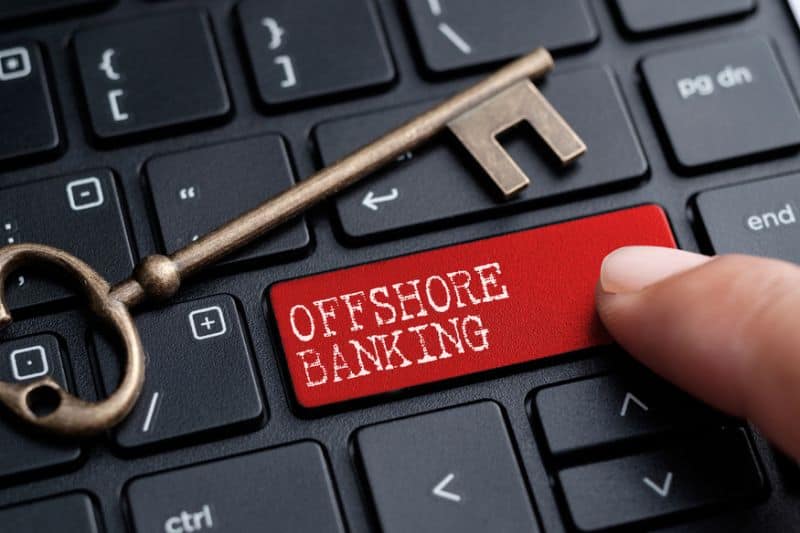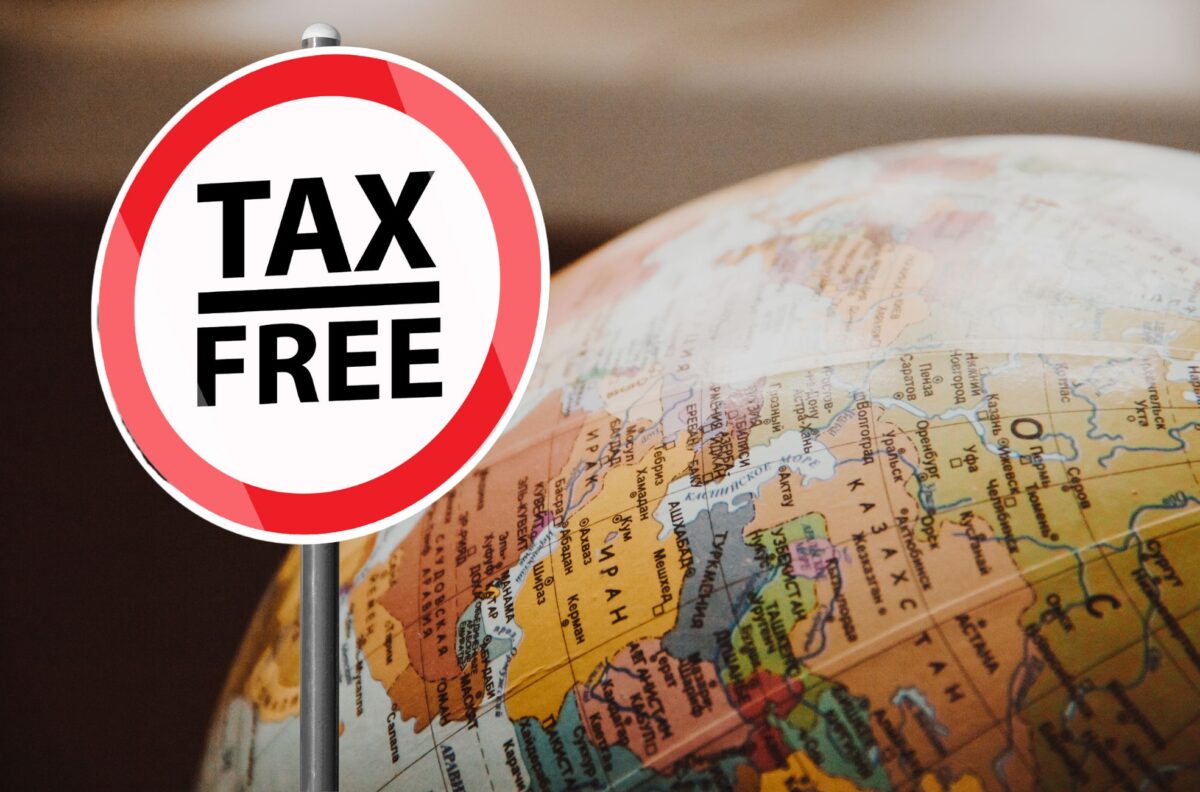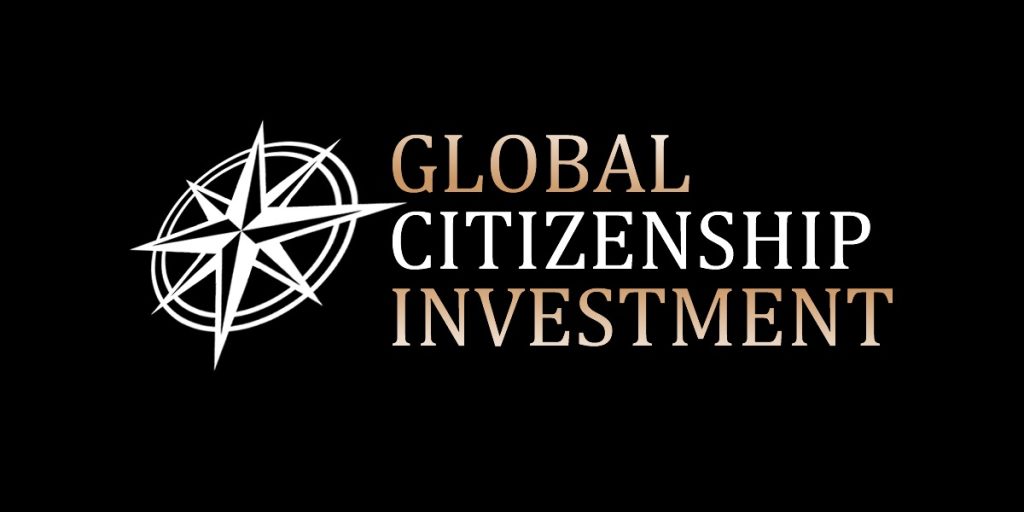Offshore trust
Protect your assets from legal risks, reduce your tax burden, and enjoy greater financial privacy and global investment freedom. an offshore trust is a powerful tool for securing your wealth and building a legacy across borders.
The offshore trust: your legal shield against a broken system
Admit it.
you’ve probably thought offshore trusts were shady—maybe even illegal.
or perhaps you assumed they’re only for billionaires hiding money and funding “trust fund babies.”
but here’s the truth:
offshore trusts are 100% legal, and anyone serious about asset protection can use them—yes, even you.
if you’re holding assets in your own name—or even through a corporation—you could be exposing yourself to unnecessary risk.
in today’s financially unstable western world, simply having wealth puts a target on your back.
lawsuits, government overreach, and asset seizures are no longer rare—they’re routine.
a properly structured offshore trust places a secure legal barrier between your assets and potential threats.
and unlike domestic trusts, foreign trusts offer protections you simply can’t get at home.
it’s one of the most powerful, proven strategies for asset protection, tax planning, and global financial freedom.
What is an offshore trust?
Let’s start with the basics.
at its core, a trust is a simple three-party arrangement:
-
the settlor transfers assets
-
the trustee manages those assets
-
the beneficiaries receive the benefits
an offshore trust works the same way—but it’s established in a foreign jurisdiction, often one with strong asset protection laws and favorable tax treatment.
the terms of this arrangement are outlined in a legal document called the deed of trust, which clearly defines how the assets are to be managed and distributed.
and yes—if you’re the one creating the trust, you can usually name yourself as a beneficiary, too.

Meet the Settlor, Trustee, and Beneficiaries
The process begins when the settlor creates a ‘deed of trust’ with the assistance of a trust attorney. the attorney then files the deed, and a trustee is appointed to manage the assets, which are subsequently placed in the trust.
here’s the critical part: when the settlor places their assets in the trust, the trustee receives the title to those assets.
in essence, the settlor transfers ownership of the assets to the trustee. the trustee now legally owns the assets, but only as per the terms laid out in the deed of trust.
this mechanism is at the heart of effective asset protection through trusts. after all, no one can take what they don’t legally own.
by setting up the trust, the settlor has entrusted the assets to the trustee, who must manage them according to the legal framework established in the trust agreement. while the trustee holds ownership, they are bound by the terms and can only use the assets as outlined in the agreement.
when someone attempts to seize these assets, they are no longer technically “yours.” you’ve already transferred them to a trustee, who is located outside your home country’s legal system. this is crucial for asset protection.
the trustee operates under a separate set of laws from your home jurisdiction. if you’ve chosen the right jurisdiction, these laws can offer better protection for your assets.
this means that local courts, even with their broad authority, cannot compel your trustee to surrender the assets within the trust.
Before diving into the different types of offshore trusts and how they can support your overall strategy, it’s important to understand the three key players involved:
Settlor
also known as the trustor, grantor, or donor, the settlor is the person who creates the offshore trust. this individual owns the assets they want to protect.
to establish the trust, the settlor must define:
-
certainty of intention – a clear intent to create a trust
-
certainty of subject matter – the specific property going into the trust
-
certainty of objects – the beneficiaries who will benefit from the trust
Trustee
the trustee is the second party, typically a legal entity like a bank or financial institution. this party holds and manages the assets on behalf of the trust.
key responsibilities include:
-
following the terms of the deed of trust
-
defending the trust from claims or creditors
-
investing the assets wisely
-
acting impartially and in the best interests of all beneficiaries
-
keeping beneficiaries informed and being fully accountable
-
avoiding self-dealing or delegating core responsibilities
Beneficiaries
these are the individuals or organizations meant to benefit from the trust.
once beneficiaries gain legal control of the trust property (usually when they reach adulthood), they can:
-
sell the assets
-
transfer them to someone else
-
release their interest
-
use the property as collateral
Global control, secure future: why offshore trusts make sense
The mechanics of an offshore trust: how it works
The process begins when the settlor creates a ‘deed of trust’ with the assistance of a trust attorney. the attorney then files the deed, and a trustee is appointed to manage the assets, which are subsequently placed in the trust.
here’s the critical part: when the settlor places their assets in the trust, the trustee receives the title to those assets.
in essence, the settlor transfers ownership of the assets to the trustee. the trustee now legally owns the assets, but only as per the terms laid out in the deed of trust.
this mechanism is at the heart of effective asset protection through trusts. after all, no one can take what they don’t legally own.
by setting up the trust, the settlor has entrusted the assets to the trustee, who must manage them according to the legal framework established in the trust agreement. while the trustee holds ownership, they are bound by the terms and can only use the assets as outlined in the agreement.
when someone attempts to seize these assets, they are no longer technically “yours.” you’ve already transferred them to a trustee, who is located outside your home country’s legal system. this is crucial for asset protection.
the trustee operates under a separate set of laws from your home jurisdiction. if you’ve chosen the right jurisdiction, these laws can offer better protection for your assets.
this means that local courts, even with their broad authority, cannot compel your trustee to surrender the assets within the trust.
What’s the best type of offshore trust?
Now that you’ve got the basics down, let’s determine the perfect offshore trust to protect your assets.
there is no one-size-fits-all solution here because a person using an offshore trust for estate planning, for example, will need to structure their trust differently than a person using it for asset protection.
the kind of offshore trust you use depends on both your overall financial situation and your tax plans.
and while there are many types of offshore trusts, you’ll likely want to set up a private trust, which is created for the benefit of individual beneficiaries, versus that of a corporation, charity, or the public.
there are also different classes of private trusts, including:
-
Revocable – a trust which may be altered or terminated by the settlor either at any time, or after a certain date. generally, you do not want this type of offshore trust.
-
Irrevocable – a trust that cannot be changed or terminated at any time by the settlor. an irrevocable trust is key to asset protection.
-
Discretionary – a trust used most often for asset protection, it’s highly flexible and provides trustees with a ‘letter of wishes’ to provide guidance to the trustee on how to manage the trust.
-
Interest in possession – a trust that allows the beneficiaries to be entitled to receive income and capital from the offshore trust, if outlined in the deed of trust.
-
Accumulation and maintenance – a trust arranged for beneficiaries who are minors and that lays out provisions for college tuition, maintenance funds, and income once a specified age is reached.
which of these private trusts you choose is entirely up to you. they each have their benefits and drawbacks.
however, it would be wise to consult an expert before you make any major financial decisions that will affect yourself and your assets.
and don’t forget that there is another way that you can protect your assets by creating a tax shelter via a universal life insurance policy.
the key to getting the maximum protection with this offshore strategy is to buy the life insurance policy with your offshore trust.
sound complicated? that’s because it is, but it’s worth it in the end.
Seven benefits an offshore trust can offer
If you’re on this page because you’re interested in discovering how to ‘hide your money from lawsuits,’ let’s get one thing clear:
We, here at GCI UNIT Worldwide, never recommend that our clients do anything illegal or ‘hide’ their money. We want nothing to do with shady practices. All our strategies are 100% legal.
An offshore trust is not somewhere to hide your money. Placing your assets in an offshore trust does not eliminate your reporting requirements.
Whether you created, received distributions from, transferred assets to, or are considered the owner of an offshore trust, you must report it to the IRS.
So, no, an offshore trust isn’t somewhere to hide your assets. It is a tool you can use to protect them. There is a difference.
And while we’re on the subject, an offshore trust is also not a bank account.
You won’t be able to walk up to an ATM and withdraw funds from your offshore trust on a whim.
The underlying principle of an offshore trust is to protect you – even from yourself!
Without this extra layer of protection, an offshore trust is no more than a glorified (and much more expensive) offshore bank account.
But here are the seven things an offshore trust can offer you:
-
Continual access to your money
If you name yourself as a beneficiary, you can receive regular distributions from your offshore trust. So, even though your money is covered by an extra layer of protection, you’ll still be able to access it via the distributions you set up under the ‘Deed of Trust.’ -
Asset protection
Asset protection is one of the top reasons to set up an offshore trust. Creditors and courts won’t be able to get their hands on your assets unless they were to fight a really long, international, and pricey legal battle… and won.
The chances of that ever happening are slim to none.
Assets like stocks and real estate that were once in your or your business’s name will be protected by an offshore trust.
An offshore trust will also protect your assets from government seizure.
They don’t even have to go through the court system. If they suspect something is wrong, they just act.
If you have not diversified internationally – whether that’s through an offshore bank, offshore trust, or even an offshore company – you could be left without cash and other vital resources.
Legal offshore tools like foreign trusts will safeguard your assets from government seizure, lawsuits, and much more.
-
Increased investment freedom
Because your offshore trust is not considered a US citizen, it is not subject to the many restrictions placed on US investors abroad. For instance, crypto investors will be able to participate in ICOs that often shut out anyone with a US address.
You can read more about different investment strategies using an offshore trust in our ultimate guide. -
Banking regulations
Because of the heavy reporting requirements placed on offshore banks that accept US clients, many banks refuse to work with US citizens.
But since an offshore trust is not a US citizen, you can use it to increase your banking options.
The bank will not need to report to the US government about a bank account set up by a foreign trust.
However, you will still need to report the bank account and any other activity performed by your trust to the US government.
Remember, this is NOT about hiding money. It is about increasing your options. -
Tax relief
Let’s be clear: an offshore trust provides tax relief, not elimination.
You and your beneficiaries will still need to pay taxes on any income or distributions received from your offshore trust.
The relief applies to any non-distributed income. As a non-US citizen or resident, the trust only pays a withholding tax on non-distributed income, rather than the full income tax rate.
Additionally, an offshore trust allows for better tax planning in general, especially when it comes to the estate tax. -
Estate planning
If it hasn’t become obvious already, besides asset protection, one of the strongest advantages of an offshore trust is that it is not considered a citizen or resident of your home country.
When it comes to estate planning, this means that the trust will disconnect from the US tax system at the time of your death.
This saves your estate from the estate tax and leaves more of your wealth for your posterity.
Any distributions made to beneficiaries will still be taxed, but the estate as a whole will be exempt from the 40% death tax currently imposed on large estates in the US. -
Peace of mind
Whatever your motivation may be, an offshore trust will give you all these benefits and more.
You will have the peace of mind that your assets are protected and that your wealth is properly structured to ensure that it is distributed exactly how you want.
Best global jurisdictions for offshore trusts
When it comes to protecting your assets, offshore trusts are among the most reliable tools when designed by tax experts and established under the right legal frameworks. however, choosing the right jurisdiction is critical for maximizing the effectiveness of your offshore trust.
You may be wondering: what are the top countries for setting up an offshore trust? Or, Is placing my assets in a Cook Islands trust really secure?
the country where you establish your trust plays a crucial role in the level of asset protection it offers. while it’s challenging to determine the absolute “best” country for an offshore trust, it’s easier to consider a few of the most reputable options based on their laws, security, and reliability.
here are some of the top jurisdictions to consider:
-
Cook islands: known for their exceptional asset protection laws, the cook Islands stand as the gold standard for offshore trusts. the cook Islands’ courts operate under a strict legal standard of “beyond a reasonable doubt” in all cases. unlike other jurisdictions, it has repeatedly defended its trusts against U.S. court rulings, making it a top choice for asset protection.
-
St. kitts and nevis: this jurisdiction requires a $25,000 cash bond for creditors to file a lawsuit, ensuring a strong deterrent against frivolous claims. If a lawsuit is lost, the losing party must bear all court costs, further protecting trust assets.
-
Jersey: located off the coast of france, jersey is recognized as one of europe’s leading financial centers, offering excellent regulatory standards and stability for offshore trusts.
-
Cayman islands: known for its large volume of foreign assets under management, the cayman Islands continues to attract global investors, particularly for offshore trusts that require significant financial services.
-
British virgin islands: with decades of experience in offshore financial services, the british virgin islands hosts the largest number of offshore companies, making it a trusted jurisdiction for creating and managing offshore trusts.
- Seychelles: Easy to structure, only one board member is required (this can be a natural or legal person).
Easy to manage, and no annual return is required. No audit of accounts is required! The safest, simplest way in the 21st century. -
Bermuda: although famous for offshore aircraft registration, bermuda is also a trusted destination for offshore trusts, offering strong legal and financial services.
-
Anguilla: a rising star in the caribbean, anguilla is a british overseas territory gaining recognition for offshore trust registration and its favorable tax policies.
-
Mauritius: popular among investors from asia, africa, and europe, mauritius offers excellent platforms for both inbound and outbound investments, including offshore trusts.
other reputable locations include barbados, antigua, trinidad, marshall islands, seychelles, nevis, cyprus, Isle of man, and the mariana Islands.
Switzerland and liechtenstein are commonly referred to for foreign trusts, although they are not strictly offshore locations. nevertheless, these countries operate under the same principles as offshore jurisdictions.
choosing the best jurisdiction for your offshore trust depends on various factors: your personal circumstances, the type of assets you want to protect, and the tax laws of the trust’s beneficiaries. Consulting with a legal or financial professional will help ensure you select the most suitable location based on your needs.
Secure your wealth Now: don’t wait for the storm
it’s admirable that you’re taking steps to protect your assets.
nothing is more disheartening than being blindsided or losing your hard-earned wealth due to an unexpected legal challenge.
that’s why it’s crucial to start developing a comprehensive offshore strategy today, not tomorrow.
and let me clarify – i’m talking about a holistic offshore strategy, not just a trust.
offshore trusts are often seen as the go-to solution, but they are not always the most cost-effective or necessary option. many times, you can achieve the same protection with other offshore tools at a fraction of the cost.
an offshore trust, like any other strategy, must align with your broader financial plan.
however, for some, an offshore trust is a critical component to make that plan succeed.
the key point: if you wait to set up your trust only after a lawsuit is filed, the court might still be able to seize your assets.
think of it like this: being aware of the potential dangers is important, but it’s the action you take that truly matters.
you know buckling your seatbelt can save your life in a car accident – it’s wise to use it, but only if you actually buckle up.
if you want to be ready for any legal storm on the horizon, now is the time to act.
start your offshore strategy, set up your offshore trust with the help of GCI UNIT Worldwide, and protect your assets today.

Do you dream of moving your residence abroad and are you looking for support and advice from an expert in this field? Then you are exactly right here!
I have many years of experience in advising people who want to move their residence abroad and offer you tailor-made solutions for your individual case. Whether you dream of going to Spain, UK, Ireland, Mexico, Dubai, Caribbean, Pacific, Malta, Balkans, Eastern Europe, Singapore, Vanuatu or Panama (or any other country that I recommend) to draw, I stand by you with my knowledge -How.

Before delving deeper into the topic, the question arises as to what offshore banking even means. It is a practice where a person or company deposits funds in a bank abroad.
Although the term “offshore” originally referred to islands and coastal regions, today most banks offering offshore accounts are no longer necessarily based near the water. Such banks were founded primarily to relieve investors of high tax burdens and at the same time to attract more investments.

The world of tax havens is changing rapidly. More and more countries are introducing taxes where there were none before. Nevertheless, there are still ways to legally reduce your tax burden in 2024.
Brunei: A sultanate in Borneo with strict Islamic laws and little cultural diversity.
Monaco: A miniature state on the French Riviera with a high cost of living and limited space, and many of its advantages can be achieved more cheaply elsewhere.





